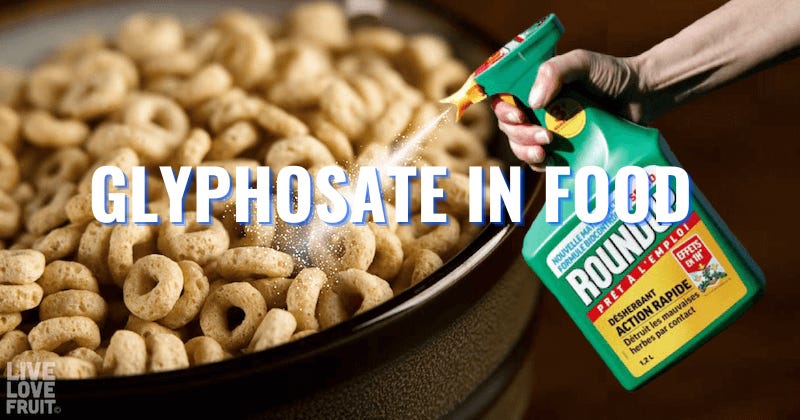Glyphosate in Food: Complete List of Products and Brands Filled with Dangerous Weed-Killer
Concern over glyphosate in food is on the rise after Monsanto was found guilty in covering up their cancer-causing product, Roundup. Monsanto has been under scrutiny ever since they were ordered to pay $289 million in damages to plaintiff, Dewayne Johnson.
Just after the first successful trial in taking down Monsanto, the Environmental Working Group (EWG) published a haunting report on the levels of glyphosate in food. According to the independent laboratory tests commissioned by the EWG, popular oat cereals, oatmeal, granola and snack bars come with a heavy dose of the cancer-causing weedkiller, Roundup.
Why Should We Care About Glyphosate in Food?
Glyphosate is the main ingredient found in the popular weed-killer Roundup. Back in 2015, a famous study published by the International Agency for Research of Cancer (IARC) came to the conclusion that glyphosate is “probably carcinogenic to humans (1).”
The link between glyphosate and Non-Hodgkin’s lymphoma is particularly strong. One study, published in 2008 by Swedish researchers, found that exposure to glyphosate tripled the risk of a subtype of non-Hodgkin called small lymphocytic lymphoma (2).
Another study published in 2003 showed a suggestive link between glyphosate-based herbicide use and non-Hodgkin lymphoma. The more pesticides a subject used, the more non-Hodgkin lymphoma incidences increased. Subjects who used five or more of the nine pesticides were “twice as likely to be NHL cases than controls (3).”
Aside from cancer, glyphosate has been associated with a host of health issues, like kidney disease (3), reproductive problems (4), liver damage (5) and birth defects (6).
Glyphosate also interferes with the ability of a plant to uptake nutrients from the soil. Glyphosate, which is a patented chelating agent, binds with nutrients in the soil, and prevents plants from absorbing them. It also acts as an antibiotic (7), which can kill bacteria both in the soil, and our own guts (both of which are incredibly important for plant and human health).
Regardless of the evidence, Monsanto still states that “Glyphosate has a 40-year history of safe and effective use. In evaluations spanning those four decades, the overwhelming conclusion of experts worldwide, including the Environmental Protection Agency (EPA), has been that glyphosate can be used safely.” Despite the lawsuit, it seems Monsanto is still in denial.
Products and Brands Filled with Glyphosate
Keep reading with a 7-day free trial
Subscribe to RevealedEye's Newsletter to keep reading this post and get 7 days of free access to the full post archives.





